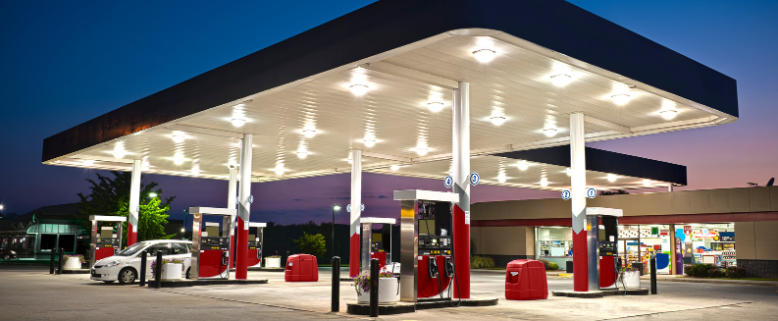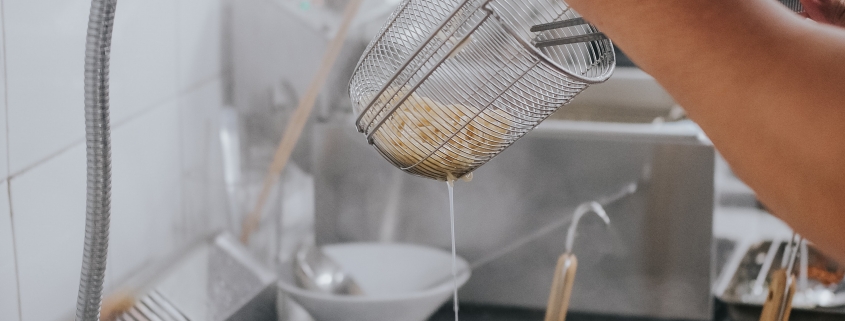Gas Station Grease Trap Cleaning in Louisville KY
If you own or manage a gas station in or around Louisville, KY, then you understand the responsibilities that come with running a successful operation. From maintaining fuel pumps to ensuring customer and employee safety, your to-do list can seem never-ending. In the thick of it all, gas station grease trap cleaning is one crucial aspect that managers can overlook easily. At Moon Grease Trap Cleaning, we want your business to be the best it can be. That’s why we provide regular grease trap maintenance in and around Louisville, KY. And, the best part about our grease trap cleaning services is that we provide routine cleanings on a regular schedule based on your needs. There’s no reason to worry about it when you can set it, forget it, and let Moon take care of the rest!
Do Gas Stations Need a Grease Trap?
A grease trap is an essential part of the waste management system for any establishment that produces brown grease. This can be restaurants or schools, but it also applies to convenience stores and food marts connected to gas stations. These traps prevent fats, oils, and grease (FOG) from entering the sewage system. When FOG enters the sewer, it can cause severe blockages and lead to expensive sewer backups and environmental hazards.
Why Gas Station Grease Cleaning is Important
Regularly cleaning and maintaining your gas station grease trap is an important part of owning your business for reasons such as:
Compliance with Local, State, and Federal Regulations
In Louisville, local health and environmental regulations mandate that food service establishments clean their grease traps regularly. If you do not keep an official record of cleanings, it can lead to hefty fines and even the potential closure of your business. By working with a professional service like Moon Grease Trap Cleaning, you ensure that you remain compliant with all local laws and regulations, which state:
- Grease traps shall be cleaned of complete fats, oils, and grease and food solids by an approved MSD Certified Grease Waste Hauler monthly (minimum) OR
- If the FOG and food solids content of the grease trap is greater than 25% of the water depth capacity of the grease trap.
- If this the case, then the grease trap needs to be cleaned weekly or as frequently as needed to prevent surpassing 25%.
Grease interceptors also must be serviced by a certified hauler. Their grease trap cleanings must not exceed 90 days or solid levels over 25% of the interceptor capacity.
Preventing Expensive Repairs
Ignoring grease trap maintenance can result in significant long-term costs. When grease accumulates, it can lead to plumbing issues, sewer backups, and expensive repairs to your gas station. Regular cleaning helps you avoid these issues and saves you money in the long run.
Protecting the Environment
When grease traps are not maintained, FOG can end up in local waterways. Since it does not mix with water, FOG buildup contributes to pollution and can harm or kill plants, animals that consume it, and aquatic life. By ensuring your grease trap is regularly cleaned and doesn’t overflow, you are making a commitment to to the environment as well.
Boosting Your Operations
A well-maintained grease trap allows your gas station to operate more efficiently. The last thing anyone wants is an overflowing grease trap surprise that requires emergency servicing. When grease accumulates, it can also hinder the performance of your plumbing system. By investing in regular grease trap cleaning, you ensure that everything functions smoothly.
Improving Customer Experience
Customer experience, as well as employee satisfaction, are very important in the competitive industry of gas stations. When you can have 2-3 gas stations all within a block of each other or at the same rest-stop, customers will want to go the one that is cleanest. Dirty and full grease traps produce bad smells as the grease and oil goes rancid, and the presence of food particles attracts pests like rats and cockroaches. Regular grease trap cleaning helps you maintain a clean environment that sets you apart from your competition.
The Process of Grease Trap Cleaning
At Moon Grease Trap Cleaning, we utilize a comprehensive approach to ensure your grease traps are thoroughly cleaned and maintained:
- Inspection: Our team begins by inspecting your grease trap to assess its condition and determine the level of cleaning required.
- Pumping: We then pump out the accumulated grease and solids from the trap. This process helps prevent any overflow that could lead to serious plumbing issues.
- Cleaning: Once the trap is empty, we thoroughly clean the interior surfaces to remove any residual grease and buildup.
- Disposal: We ensure that all waste is disposed of according to local regulations, maintaining compliance and environmental safety.
- Maintenance Recommendations: After cleaning, we provide recommendations on how often you should schedule future cleanings based on your specific usage patterns.
Choosing the MSD-Certified Grease Hauler
When it comes to gas station grease cleaning, choosing a reputable provider is essential. Moreover, the City of Louisville requires it. At Moon Grease Trap Cleaning, we pride ourselves on our experience, professionalism, and commitment to customer satisfaction. Our team is MSD certified and well-versed in the the local regulations to address the specific needs of gas stations in Louisville.
Moon Gas Station Grease Trap Cleaning Services in Louisville, KY
Regular grease trap cleaning is not just an obligation; it’s a critical component of maintaining your gas station’s operations. From protecting the environment to enhancing customer satisfaction, the benefits extend past the legal requirements. By partnering with Moon Grease Trap Cleaning, you can focus on what you do best—serving your customers and running your business—while we take care of the grease traps. Don’t wait for a problem to arise; schedule your grease trap cleaning today by contacting Moon Grease Trap Cleaning at 502-776-2199!
Moon Grease Trap Cleaning is a part of Moon Companies. We offer a wide variety of trade services for the citizens and businesses of Louisville, KY, Southern Indiana, and the surrounding areas.
- Shipping Container Rentals: For those looking to buy or rent new or used shipping containers, Moon Trailer Leasing has a large selection of one-trip Conex boxes, as well as pre-fabricated portable offices.
- Portapotty Rentals: Rent out restrooms, luxury bathroom trailers, commercial shower trailers, and handwashing stations from Moon Portable Restrooms for your next construction site or outdoor event.
- Dumpster Rentals: Moon Mini Dumpsters delivers roll-off dumpsters directly to your home or business and then hauls away your trash for you.
- Refrigerated Container Rentals: For refrigerated containers rentals in Louisville, KY, contact Moon Refrigeration about our ready-to-go reefer containers.
- Portable Storage Units: Go Minis KY is a premier storage choice that offers an onsite storage, location-to-location moving services, and secure warehouse storage
- Grease Trap and Interceptor Cleaning: Keep your restaurant up to regulation and schedule your restaurant’s grease trap cleanings with Moon Grease Trap Cleaning.










